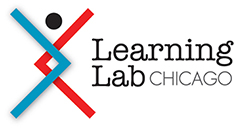The Importance of Phonological Awareness in Learning
Phonological awareness is crucial for understanding language and how words come together. Children who struggle with phonological awareness at an early age often have difficulties with reading and writing later on. In fact, research has shown a majority of poor readers and spellers display a weakness in phonological awareness.
Phonemic awareness is the foundation to reading. By developing phonemic awareness skills you are able to learn the meaning of sounds and words. Phonemic awareness is when listeners are able to hear, identify and manipulate the smallest units of sound that can differentiate meaning.
Phonological awareness is the ability to identify and manipulate parts of oral language, such as syllables, words, onsets and rimes. Children with phonological awareness can recognize words with similar sounds, identify and create rhymes and clap out the number of syllables in a word. On the other hand, kids who struggle with phonological awareness may have trouble rhyming simple words (e.g., cat, bat, rat) and separating individual sounds and syllables within a word.
Why is it important for spelling and reading?
The ability to recognize the different sounds and syllables in words has a huge influence on reading and spelling. Phonological awareness allows you to learn the meaning and pronunciation of new words more quickly by comparing them to similar words you already know. This awareness increases reading comprehension and vocabulary. Phonological awareness also helps spelling by making words easier to break down into common syllables and speech sounds. If children have a hard time with phonological awareness, they may become frustrated easily when writing sentences or encountering new words while reading.
How can low phonological awareness be improved?
Fortunately, phonological awareness is a learned skill. While some kids learn more quickly, others need more time and attention. If a child is struggling, activities that build sound skills — reading stories or singing songs with rhymes, practicing the alphabet by pointing out letters wherever you see them, playing word games — will help grow their phonological awareness. Parents should also check with teachers to ensure the school’s reading program includes phonological skill development. With improved phonological awareness, children can perform better in reading, writing and overall learning.
Schedule a consultation to discuss your academic concerns:
[pb_button component_description=”Schedule A Consultation” src=”http://www.learninglabchicago.com/contact-us/” src_target=”_blank” size=”medium”]Schedule A Consultation[/pb_button]
*Reference: http://www.readingrockets.org/article/why-phonological-awareness-important-reading-and-spelling

